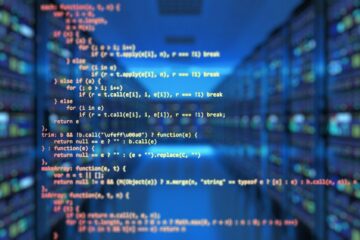![]()
“Can we secure the world from a bloodless war? I’m talking about cybersecurity. India must take the lead in cybersecurity through innovation.”
PM, NARENDRA MODI
Introduction:
Are you worried about cybercrime? What is cybercrime, how to understand its different types, and how to protect yourself from it? Cybercrime is a criminal activity that either targets or uses a computer, a computer network, or a network device. Cybercrime is intended to harm computers for reasons other than profit. They can be political or personal. Cybercriminals can infect computers with viruses and prevent devices from damaging or functioning. They also use malware to remove or steal data. Sometimes cybercriminals handle both categories of cybercrime at once. Cybercriminals first target computers with viruses. Then, use them to spread malware to other machines or networks. Cybercriminals are also known as a Distributed-Denial-of-Service (DDoS) attack.
Types of Cyber Crime
- Identity theft (Fraud): When personal information of an individual is stolen to use their financial resources or to require a loan or Mastercard in their name then such a criminal offense is understood as Identity theft.
- Cyberterrorism: When a threat of extortion or any quite harm is being subjected to an individual, organization, group, or state, it’s referred to as the crime of Cyber Terrorism. Generally, it involves a well-planned attack strategy on government and company computing systems.
- Cyberbullying: When an adolescent or adolescent harasses, maligns, or intimidates someone with the utilization of the web, phone, chat rooms, instant messaging, or other social networks, the person is claimed to have committed the crime of Cyberbullying.
- Hacking: The foremost common cybercrime is Hacking. In this crime, the person gains access to other people’s computers and passwords to use it for their wrongful gain.
- Defamation: While everyone has the right to make speeches on Internet platforms as well, if they make a statement that crosses the line and damages the reputation of an individual or organization, they will be charged with defamation.
- Copyright: With a huge surge in Internet users, when data/information is distributed across all platforms, copyright of your work gives you access to limit the use of your work. Any use of your copyright without your permission is a punishable offense.
- Trade Secrets: Internet organization spends tons of their time and money in developing software’s, applications, and tools and believe Cyber Laws to guard their data and trade secrets against theft; doing so is a punishable offense.
- Freedom of Speech: When it involves the web, there is a very thin line between freedom of speaking and being a cybercriminal. As freedom of expression enables individuals to speak their mind, cyber law refers to obscenity and imprudence on online.
- Harassment and Stalking: Harassment and stalking are also prohibited on Internet platforms. Cyber laws protect victims and prosecute criminals against this crime.
What Cyberlaw says?
Cybercrime first started with hackers trying to interrupt into computer networks. Some did it just for the pleasure of accessing high-level security networks, but others tried to realize sensitive classified content. Eventually, criminals started infecting computer systems with computer viruses, causing breakdowns on personal and business computers. Computer viruses are sorts of code or malware programs that will copy themselves and damage or destroy data and systems. When computer viruses are used on an outsized scale, like a bank, government, or hospital networks, these actions could also be categorized as cyberterrorism. Computer hackers also engage in phishing scams, such as asking for bank account numbers and credit card theft.
Cyberlaw in India isn’t a separate legal framework. It’s a mixture of Contracts, property, Data protection, and privacy laws. With the PC and internet taking up every aspect of our life, there was a requirement for strong cyber law. Cyber laws supervise the digital circulation of data, software, information security, e-commerce, and monetary transactions. The IT Act, 2000 addresses the gamut of new-age crimes. Computer technology, mobile devices, software, and therefore the internet is both medium and target of such crimes. All criminal activities are like defamation, fraud, forgery, theft, and mischief are a part of cyberspace. These had already been addressed in the Indian Penal Code.
Importance of Cyber Law in India
Cyber laws in India or cybercrime laws in India are important because the Cyber Crime Act in India covers all aspects of web-transactions and activities related to web and cyberspace.
In the present world which is more tech-savvy, the words cyber law and cybercrimes have also become more sophisticated. Internet and technology were launched for research purposes and making the lives of humans easy but because the use and number of individuals on the web increased, the necessity for cyber laws in India was felt. because the nature of the web is anonymous it’s easy to commit cybercrimes. Due to which many people can abuse this aspect extensively.
What is the Information Technology Act, 2000?
When the stress was on the necessity for cyber law or cybersecurity laws, then, it had been imperative to implement an IT law in India. Thus, the Information Technology Act, 2000, or also referred to as the Indian Cyber Act or the web Law came to force in India. Since enacted, Indian Internet laws were designed to be used to give legal recognition to all electronic records and online/electronic activities. The IT Act also solves problems with security. The web Laws in India not only validates digital signatures but also provides for a way authentication of the documents, which has been accepted and generated by using the digital signatures, are often done. As IT Act may be a cybersecurity law introduced to secure cyberspace, the Information Technology Law was amended under;
- The Indian legal code
- The Indian Evidence Act
- The Banker’s Book Evidence Act
- The Federal Reserve Bank of India
The IT Act, 2000 went through an amendment in the year 2008. These were created in light of the laws of the IT Act, 2008 through the Cyber Act, IT Act, 2000. They were enforced at the start of 2009 to strengthen the cybersecurity laws. Modifications within the Information Technology Act, 2008 included the change within the definition of some terms like communication devices.
How Cybersecurity Policies and Procedures are Protected Against Cyberattacks?
Cybersecurity is a crucial issue for both IT departments and C-level officers. However, security should be a priority for every employee in a corporation, not only IT professionals and top managers. One effective thanks for educated employees on the importance of security may be a cybersecurity policy that explains each person’s responsibilities for shielding IT systems and data. A cybersecurity policy sets standards of behavior for activities such as encryption of email attachments and restrictions on the use of social media.
Cybersecurity policies are important because cyberattacks and data breaches are potentially costly. At an equivalent time, employees are often the weak links in organization security. They share passwords, click on malicious URLs and attachments, using inappropriate cloud applications, and neglect to encrypt the sensitive files. Grand larceny Data, a McAfee report on data exfiltration, found that folks inside organizations caused 43% of knowledge loss, one-half of which was accidental. Improved cybersecurity policies can help employees and consultants better understand the way to maintain the safety of knowledge and applications.
These types of policies are particularly publicly important companies or organizations that operate in regulated industries such as health, finance, or insurance. These organizations risk large penalties if their security procedures are considered inadequate. Even small firms are not ready to catch on security and which resulting that loss of consumer data. Some states, like California and New York, have established information security requirements for organizations doing business in their States. Cybersecurity policies also are critical to the general public image and credibility of a corporation. Shareholders, Customers, Partners, and Potential employees need proof that the organization can protect its sensitive data. Without a cybersecurity policy, a corporation might not be ready to provide such evidence.
How to protect yourself against cybercrime?
So, now you understand what is cybercrime and therefore the way how it affects you and your devices. Now, what are the simplest ways to guard your computer and your data?
- Use strong passwords: Make certain to use strong passwords that folks won’t guess and don’t record them anywhere. Or use a reputable password manager to get strong passwords randomly to form this easier.
- Never open attachments in spam emails: A classic way that computers get infected by malware attacks and other sorts of cybercrime is via email attachments in spam emails. Never open an attachment from a sender you are doing not know.
- Do not click on links in spam emails or untrusted websites: Differently, people become victims of cybercrime is by clicking on links in spam emails or other messages, or unfamiliar websites. Avoid doing this to remain safe online.
- Do not give out personal information unless secure: Never give out personal data over the phone or via email unless you’re completely sure the road or email is Secure. Make sure that you Simply are chatting with the person that you know.
- Contact companies directly about suspicious requests: If you get asked for data from a corporation who has called you, hang up. Call them back using the amount on their official website to make sure you’re chatting with them and not a cybercriminal.
Ideally, use a Special phone because cybercriminals can hold the road open. Once you think you’ve re-dialed, they will pretend to be from the bank or other organization that you simply think you’re chatting with. - Be mindful of which website URLs you visit: Keep an eye fixed on the URLs you’re clicking on. Do they appear legitimate? Avoid clicking on links to unfamiliar or unsolicited URLs.
If your internet security product includes functionality to secure online transactions, ensure it’s enabled before completing financial transactions online. - Keep an eye fixed on your bank statements: Keep track of your bank statement and query any unfamiliar transactions with the bank. The bank can investigate whether they are committing fraud or not.
Famous Cases of Cyberattacks in India
- UNION BANK OF INDIA HEIST, JULY 2016
Through a phishing email sent to an employee, hackers accessed credentials to execute a fund transfer, swiping $ 171 million to Union Bank of India, prompt action that helped the bank recover almost the entire money
- WANNACRY RANSOMWARE, MAY 2017
The global ransomware attack shut down several thousand computers in India by ransom hackers. The attack affected the systems related to the Andhra Pradesh Police and the state utilities of West Bengal.
- DATA THEFT AT ZOMATO, MAY 2017
The food tech company discovered that data, including the names, email IDs hashed passwords of 17 million users, had been stolen by an ethical hacker, who demanded the company acknowledge its security vulnerabilities and put them on the Dark Web for sale Had.
- PETYA RANSOMWARE, JUNE 2017
The ransomware attack felt its impact around the world, including India, where container handling functions were affected at a terminal operated by Danish firm AP Moller-Maersk at Jawaharlal Nehru Port Trust in Mumbai.
Conclusion
It is cleared from the previous studies and records that with the increment in technology cybercrimes will increase. Qualified folks commit a crime a lot of, therefore, there is ought to notice principles and PC ethics for his or her use of incorrect manner crime, and hacking are not departures if something it is obtaining stronger. By finding out past incidents, we will learn from them and use that information to prevent future crime. Cyberlaw is going to be ought to modification and evolve as quickly as hackers do if it is any hopes of dominant crime.
Law should conjointly realize a balance between protective voters from crime, and infringing on their rights. There will continuously be new and surprising challenges to stay before cyber criminals and cyber terrorists however we’ll win solely through the partnership and collaboration of each people and government. There is a lot of we will do to form certain secure and trustworthy computing surroundings. It is crucial not solely to our national sense of well-being, however conjointly to our national security and economy. India has taken heaps of steps to stop crime however the cyber law cannot afford to be static, it is to vary with the dynamical time.
I guess you understood the threat of crime, defend yourself from it.



0 Comments